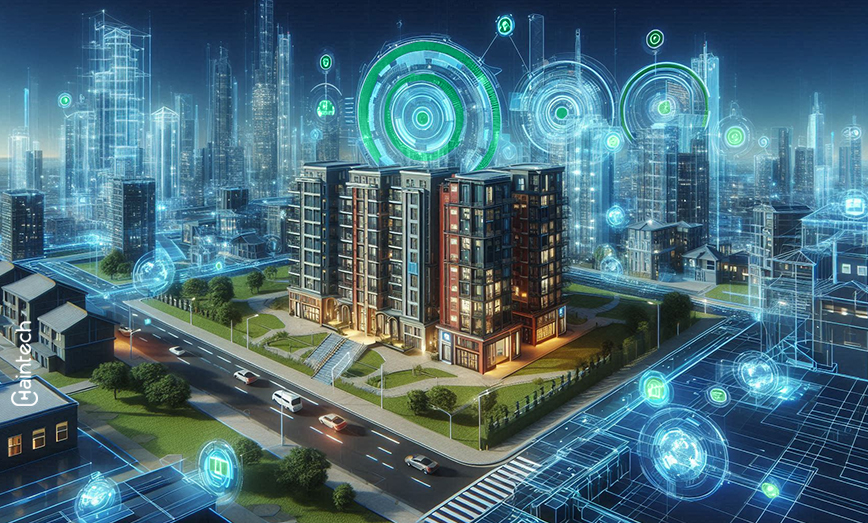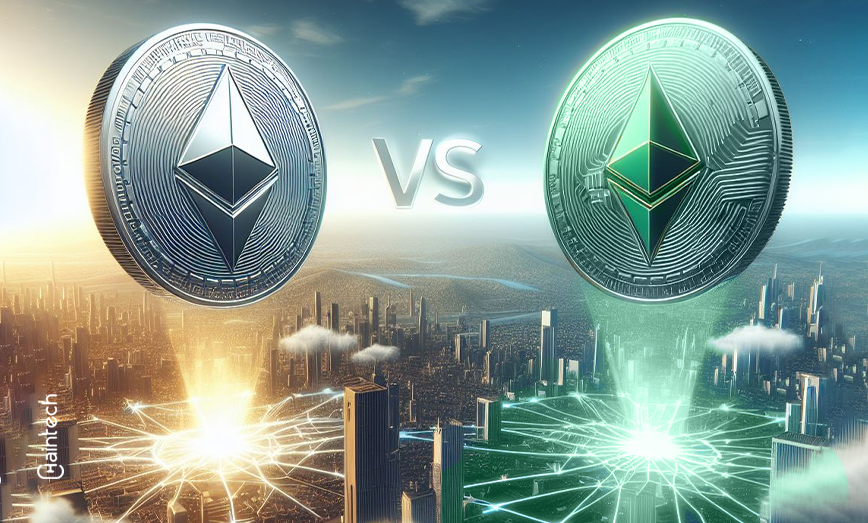The Future of Metaverse in Real Estate

Real estate investing has traditionally been profitable. But what about the metaverse, or virtual real estate? It may seem odd, but it’s happening.
Since Facebook became Meta, the virtual real estate market has boomed. Investors are paying millions for digital property plots. Virtual property values have increased by 500% due to metaverse interest and potential.
What is the future of metaverse real estate? How does this virtual property market work? What are its opportunities? This guide will explain metaverse real estate and its implications for investors and users.
Let’s learn more about it.
What is the metaverse?
The application of new technologies such as VR, AR, and MR has resulted in the creation of the metaverse, which is a combination of both the real and virtual worlds. The metaverse is a 3D virtual world where people can communicate through their digital avatars and switch experiences effortlessly while being able to maintain their digital identities and assets. It is also often referred to as the next feature of the internet.
The concept of a virtual environment where individuals are capable of living and interacting in ways humans have never experienced before is not new; it was, in fact, a thing way before the internet. The metaverse is getting closer to reality, thanks to hand-held devices, broadband internet, and games such as Fortnite and Pokémon Go.
What is metaverse real estate?
Metaverse real estate refers to virtual land and properties within a digital environment. Imagine owning a piece of a 3D virtual world where you can design advertising billboards, business areas, and corporate headquarters.
Despite only having pixels as representation, the metaverse real estate market is thriving. Metaverse platforms let users exchange NFTs, play games, promote products, and attend meetings using digital avatars. Virtual places are becoming more essential as firms and individuals explore this new frontier.
Metaverse real estate is predicted to expand 37.73% from 2024 to 2030. Virtual land may become valuable as the metaverse grows.
Reference: https://www.statista.com/outlook/amo/metaverse/worldwide#market-size
Why do people buy metaverse real estate?
Initial metaverse real estate valuation can be difficult. Virtual property is worth what you generate, unlike real estate. The metaverse is an interactive platform where users and brands can create unique virtual experiences.
Metaverse real estate lets designers build virtual environments. This could involve creating immersive social spaces, engaging activities, charging for admission, or selling NFTs. Creating a user-friendly personal or commercial virtual area is the goal.
Metaverse real estate offers new client engagement opportunities for brands. HSBC, Samsung, and Nike have invested in virtual properties to boost their footprint. HSBC is creating a new service environment in The Sandbox, and Samsung hosts the #RecycleUp Fashion show in Decentraland. Nike provides a virtual store where users can play games, browse merchandise, and buy NFTs.
As the metaverse grows, virtual real estate will become more appealing, giving individuals and corporations fascinating chances to customise their digital presence.
How does metaverse real estate differ from traditional real estate?
Metaverse real estate is different from traditional property. Metaverse properties exist in a virtual world where innovation is the only limit, unlike physical real estate. In the metaverse, you can construct and modify your place without environmental or legal limits on physical properties.
Traditional real estate values depend on infrastructure, neighbourhood amenities, and market trends. However, in the metaverse, virtual foot traffic and proximity to famous digital events or hubs often determine the value of actual metaverse properties, which might be attractive if they are in a lively digital community.
Blockchain technology is more efficient, secure, and transparent than traditional real estate transactions, making it ideal for metaverse transactions. This digital platform simplifies purchasing, selling, and ownership transfers, reducing the complexity of real property negotiations.
The physical world places restrictions on traditional real estate, whereas metaverse real estate is limitless, adaptable, and evolving. This emphasises virtual property’s transformational power in the digital age.
How Do You Buy Real Estate in the Metaverse?
Buying real estate in the metaverse may sound intimidating, but it’s a straightforward process once you get to know the basics. Here’s a simple guide to help you navigate the virtual property market:
1. Research Platforms:
Start by exploring popular metaverse platforms like Decentraland, Cryptovoxels, or The Sandbox. Each platform offers its own unique environment, currency, and land options.
2. Create a digital wallet:
To make purchases, you’ll need a digital wallet compatible with your chosen platform. Wallets like MetaMask or Coinbase Wallet are widely used to store your virtual funds and ensure secure transactions.
3. Browse Available Plots:
Within your chosen platform, check out the available plots of land. Many platforms provide a visual map where you can see the plots’ locations, sizes, and prices.
4. Evaluate location:
Just like in traditional real estate, location is key. Look for plots near popular hubs or events, as these can influence the plot’s value and make it a better investment.
5. Make a purchase:
Once you’ve picked a plot, follow the platform’s purchasing process. This usually involves transferring cryptocurrency or platform-specific tokens to acquire ownership rights.
6. Ownership Verification:
After the purchase, your virtual land ownership is often represented as a non-fungible token (NFT). This NFT serves as proof of ownership and protects your property from fraud.
Where can you buy metaverse real estate?
If you want to invest in virtual real estate, there are several popular platforms for buying and selling metaverse land. Here is a guide to some of the best platforms:
Decentraland:
One of the oldest metaverse platforms is Decentraland, founded in 2015. Users can produce, experience, and monetize content and apps on this decentralised platform. For virtual land sales, use the Decentraland Marketplace. The easy-to-use interface makes finding the right parcel simple.
The Sandbox:
Decentraland and The Sandbox are prominent platforms for developing and selling virtual content and experiences. The Sandbox Marketplace makes buying virtual real estate easy with its large assortment of land parcels.
Auctioning Somnium Space:
Decentralised virtual reality platform Somnium Space auctions virtual land. These auctions are public and transparent. Somnium Space offers fair and open processes.
OpenSea:
The largest NFT marketplace, including metaverse land, is OpenSea. Its large lot selection and user-friendly interface make it easy to find and buy land.
What is the future of investing in metaverse real estate?
Future metaverse real estate investments depend on metaverse success and evolution. Seeing the metaverse as the “next generation” of the internet, Meta (previously Facebook), Microsoft, and Nvidia are investing substantially. Digital real estate might become valuable and fascinating if their vision comes true and the metaverse becomes as important as the internet has been over the past two decades.
Corporations, personal brands, and influencers will discover new methods to interact, build audiences, and produce creative products and services in this digital landscape. The metaverse may become part of our daily lives since it’s more immersive and interesting than the web and social media.
A vibrant and competitive market is envisaged as the metaverse evolves and demand for digital land and real estate rises. The future of metaverse real estate is bright for those ready to explore this new frontier.
Pros and Cons of Virtual Real Estate
Pros
Accessibility:
Anyone with an internet connection can buy virtual property. You may buy and sell houses from home using a smartphone, laptop, or computer.
Profitability:
Digital real estate investing is lucrative. Current investors can sell their holdings at higher prices as more individuals buy virtual land, potentially reaping large profits.
Flexibility:
Digital property purchases don’t involve banks or government laws. Exploring choices and investing immediately simplifies the process.
Cons
Poor Regulation:
Digital real estate is risky due to a lack of regulation. Investors risk fraud, manipulation, and loss without oversight.
Unpredictability:
The internet changes quickly, making market trends hard to anticipate. Prices and values of virtual properties might change daily, adding uncertainty.
Increased Cyber Threats:
Cyberattacks can compromise digital real estate deals. Investors must protect their investments from data breaches and financial losses with strong cybersecurity.
Conclusion
In today’s digital environment, buying real estate in a virtual world without physical areas is becoming more popular. As more firms, investors, and creators aspire to buy metaverse land, interest is rising.
Metaverse real estate may continue to rise, but interest in this digital terrain will persist. As more individuals discover the metaverse, its virtual real estate market will certainly attract innovation and investment. However, it’s important to think carefully before investing. Make sure to research thoroughly and understand the risks involved in this evolving market.
However, it’s important to think carefully before investing. Make sure to research thoroughly and understand the risks involved in this evolving market.









